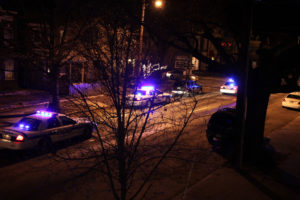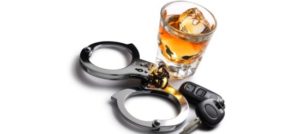Speedometer Calibration
In this article I will discuss the following issues regarding speedometer calibration for reckless driving and speeding cases: Should the Speedometer be Calibrated? Where to get a Speedometer Calibration, and how to read a Speedometer Calibration. The following is provided for informational purposes only, and is not legal advice. If you are charged with reckless driving by speed or speeding in the Fredericksburg, Virginia area, call the Law Offices of Joseph T. Brown PLC at 540-786-7700 for a free consultation.
It happens all the time. A person gets pulled over for speeding, the police officer informs them of the speed that they were going, even though the speedometer showed something different.
Car manufactures usually calibrate speedometers to show a speed that is a little higher than the actual speed, to give drivers some margin for error. Federal law allows factory speedometers to read 10% higher or lower than the actual speed (49 CFR 393.82).
https://www.law.cornell.edu/cfr/text/49/393.82
Speedometers can show the wrong speed
There are several factors that can cause a speedometer to show a speed that is incorrect. One major factor is the age of the car, as many times older vehicles with a lot of miles and wear on them will have speedometers that are not as exact as they used to be.
After-market tires and rims can also cause the speedometer to show an incorrect speed. If the wheel diameter is larger than the stock wheels, then the speedometer is going to show a speed that is lower than the actual speed. The difference in speedometer reading for non-stock tires can be calculated here:
http://www.instrumentclusters.com/#!speedometer-calculator/g5w1j
Other factors include tire wear, tire temperature and pressure, and load on the vehicle.
Speedometer Types
There are two basic types of speedometer mechanism, mechanical and electric. Both types are affected by the factors that are described above, especially tire diameter.
Cars older than 30 years or so used a mechanical method of determining speed of the car. A cable was attached to a gear mounted on the transmission, and the cable rotated inside the speedometer housing that created a magnetic field that would pull the speedometer dial to show the speed of the car.
Electrical speedometers, used on most cars on the road today, are controlled by the car’s ECU and measures pulses generated within the transmission by magnets located on the transmission’s output shaft. The car’s computer reads the magnetic field pulses to measure the rotational speed of the driveshaft and determines the speed of the vehicle.
Testing the Speedometer
Before paying for a speedometer calibration, a speedometer can be tested to see if it is not showing the correct speed. This method is not exact, but it can help determine if the car should be put on a dynamometer to be tested.
A measured mile is required. There are mile markers on the interstate highways and on some county roads. This method should only be used if it can be done in a safe manner.
At the beginning of the measured mile, take note of the odometer reading or reset the trip odometer to 0.0. At the end of the measured mile, take note of the odometer reading or the trip odometer reading.
If the odometer shows more than a mile was traveled, then the speedometer is showing a speed that is faster than the actual speed. If the odometer shows less than a mile was traveled, then the speedometer is showing a speed that is slower than the actual speed.
Speedometer Calibration Dynamometer
The best way to show in court that a speedometer is not showing the correct speed is to have a speedometer calibration certificate. Any automotive shop with a chassis dynamometer can test the speedometer and produce a certificate showing the speed that the speedometer displays at actual tire rotation speeds.
Generally speaking, a dynamometer is a device that measures force, torque, or rotational velocity. A chassis, or rolling road dynamometer is a specific type that is used for automobiles for many purposes, including calibrating a speedometer.
https://en.wikipedia.org/wiki/Dynamometer#Chassis_dynamometer_.28rolling_road.29
The chassis dynamometer will rotate and specific speeds, and the speedometer reading is noted at each tested speed, and recorded on the certificate.
How to Read a Speedometer Calibration Certificate
Most courts will allow a speedometer calibration certificate to be presented to the judge without a representative from the automotive shop present to verify that the certificate is authentic. However, before a certificate is presented to the judge, it should be examined closely to determine if it is actually helpful, and not harmful.
The speedometer calibration certificate will show several tested speeds, from 10 mph up to 70 or 80 mph. For each tested speed, the speedometer reading will be displayed.
If the speedometer reading is exactly the same as the tested speed, then the speedometer is working perfectly and the certificate is not helpful to defend a speeding ticket. If the speedometer shows a speed higher than the tested speed, then the certificate is actually harmful to a speeding case, since the driver had reason to believe the vehicle was traveling faster than the actual speed.
A useful speedometer calibration certificate will show a speedometer reading that is slower than the actual tested speed. In most cases the judge will give credit for the error in the speedometer reading, and lower the speed charged by the police by the same amount.
Where to get a speedometer calibration
There are several automotive shops in the Fredericksburg area that have a chassis dynamometer and can test the speedometer and produce a speedometer calibration certificate.
Southern Electronics
http://www.instrumentclusters.com/#!faq/aabrx
Brauning Automotive
http://brauningautomotive.com/performance.html
Burton’s Automotive
http://burtonauto.tripod.com/
Speedometer Testing and Calibration Center, Richmond, VA
http://www.speedotest.com/
Falls Run Car Care Center
540-899-6800
1314 Princess Anne Street
Fredericksburg, VA 22401
M&L Auto Inc.
http://www.mlautoinc.com/contact
Speedometercalibration.net, Sterling, VA
http://www.speedometercalibration.net
The Next Step
If you are charged with reckless driving by speed or speeding in the Fredericksburg, Virginia area, call the Law Offices of Joseph T. Brown PLC at 540-786-7700 for a free consultation. We will discuss your particular case and I will help you identify ways to defend your case and tell you what you can do before trial to give you the best chance to have the ticket dismissed or lowered to help avoid potential jail sentence, loss of license, and help you save money in fines, fees and increased insurance costs.
Photo by Sarah Sphar


